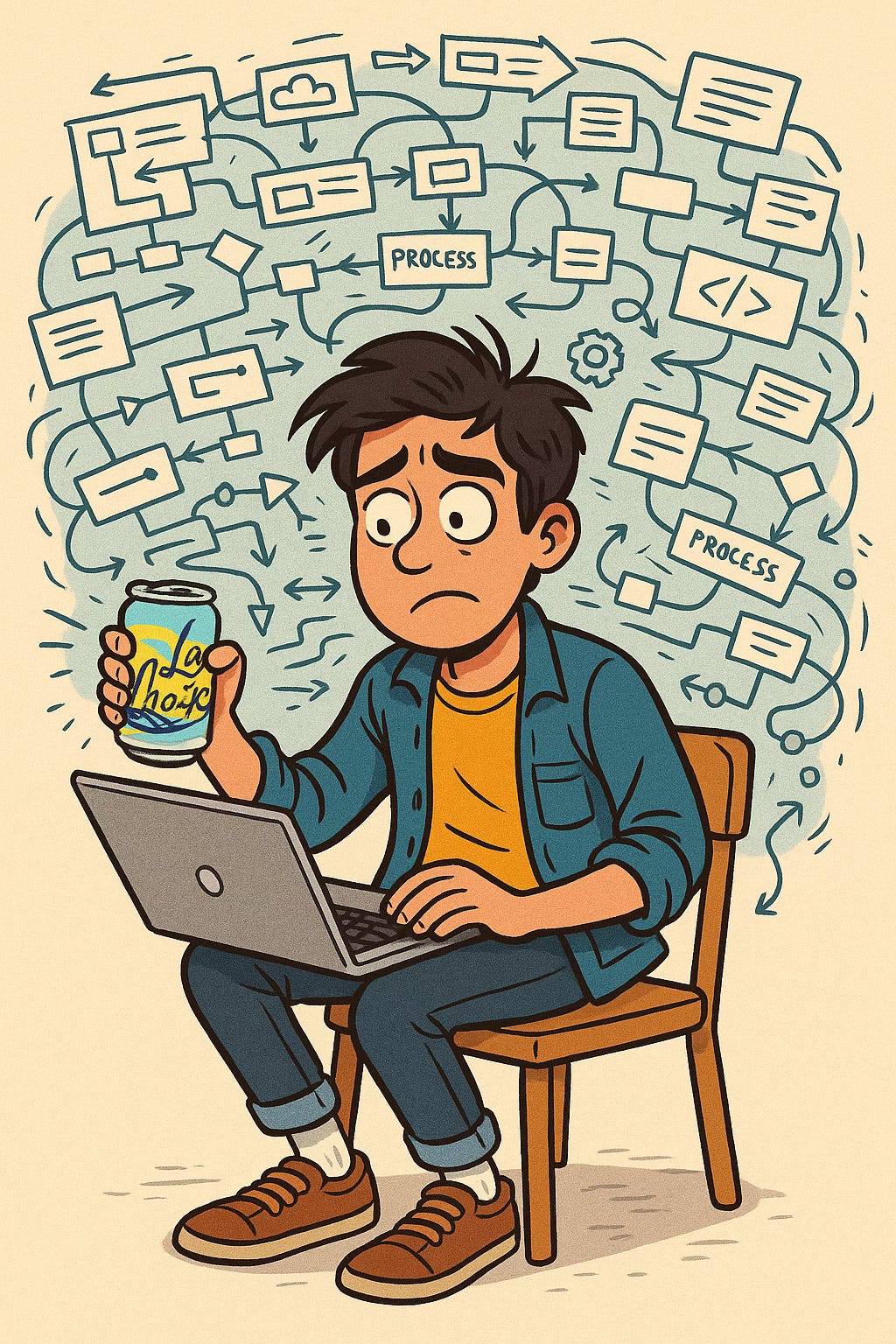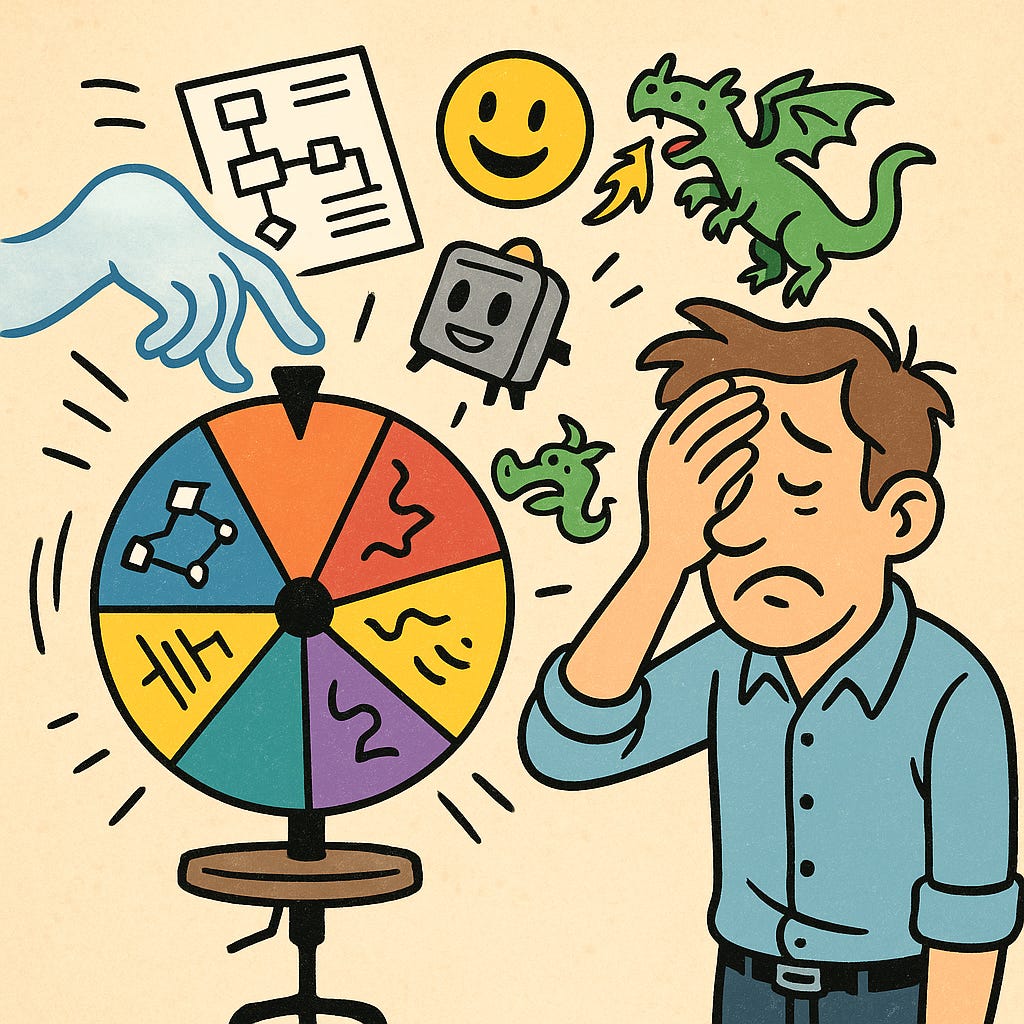The Organization of the Future Still Needs Tech Writers Who Can Roll Their Eyes
AI may generate, but people still drive (and tech writers still navigate)
Every time I open LinkedIn these days, someone is announcing that AI has taken their job, or worse, that AI has taken their soul. They don’t say it quite like that, but the melodrama is there: “I used to write copy, but now ChatGPT does it in 30 seconds.” Cue ominous violin music.
As a technical writer, I can’t help but laugh. Not because it isn’t serious—it is—but because most of us know the dirty little secret: the hardest part of this job has never been “writing words.” If it were, we’d have been replaced long ago by marketing interns with liberal arts degrees and a case of LaCroix. The real challenge is making sense of a world where nothing stays still long enough to document it.
Enter generative AI, the latest character in our tragicomic office play.
According to McKinsey, it’s going to “enable the organization of the future”. That’s consultant-speak for “brace yourselves, everything is changing again.” But if you read past the buzzwords, there’s an important caveat: organizations may be powered by gen AI, but they’ll still be driven by people. People like us — the ones who are supposed to explain this circus to everyone else without sounding like lunatics.
I’ve already watched AI crank out draft documentation that looked eerily plausible. For about ten minutes, I felt my job security wobble.
Then I read it again. It was like watching a magician pull a rabbit out of a hat, only to realize the rabbit is taxidermied and missing an ear. Sure, it looked like documentation, but it was riddled with hallucinations, half-truths, and the kind of optimism usually reserved for timeshare salesmen.
Researchers have pointed out that “hallucinations” are one of gen AI’s most persistent flaws. That’s when it hit me: the AI can spin a story, but it can’t tell when the story is useful — or true. That part is still mine to do.
What does this all mean?
What this means is that our work is changing shape. We’re no longer just scribes capturing the output of developers. We’re now interpreters of machine output, risk translators, and—if we’re honest—therapists for colleagues who are quietly terrified that a chatbot is going to replace them.
AI may draft the words, but we’re the ones who make sure those words don’t cause a lawsuit, a meltdown, or a late-night call from a panicked customer who followed the wrong instructions.
McKinsey says the organizations that thrive will be the ones that embrace experimentation, trust, and adaptability.
That sounds lofty, but in practice it looks a lot like what tech writers already do:
experiment with tools
figure out where they break
and then explain it to everyone else using metaphors that involve cooking or IKEA furniture
We’re professional sense-makers in a world that makes less and less sense.
So, yes, gen AI is here to stay. It will keep generating, and people will keep being people — messy, skeptical, hopeful. And technical writers will be the ones stitching those two realities together, half comedian, half cartographer. In the “organization of the future,” that’s a job description AI can’t fake. 🤠






"Then I read it again. It was like watching a magician pull a rabbit out of a hat, only to realize the rabbit is taxidermied and missing an ear. Sure, it looked like documentation, but it was riddled with hallucinations, half-truths, and the kind of optimism usually reserved for timeshare salesmen."
Absolutely perfect framing, and I might have snorted a bit at the timeshare salesmen quip. (My mother was briefly a timeshare salesperson. You're not wrong at all. 😆)